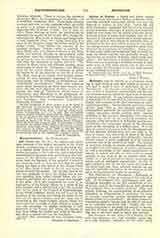

Aerius of Pontus, a friend and fellow ascetic of Eustathius, who became Bishop of Sebaste (355), and who ordained Aerius and placed him over the hospital or asylum in that city. Aerius fell out with Eustathius, upbraided him for having deserted ascetic practices, and began to preach new doctrines, insisting that there was no sacred character distinguishing bishop or priest from laymen, that the observance of the feast of Easter was a Jewish superstition, and that it was wrong to prescribe fasts or abstinences by law, and useless to pray for the dead. According to some, Aerius was inspired to teach these doctrines by his jealousy of Eustathius. For a time, he had many followers in Sebaste, but he could not make his tenets popular, and gradually he and his sect became an occasion of abuses, which made them odious. His movement is considered important by Protestants as indicating a tendency to some of their views even at this early period; but it also shows how strongly the Christians of his day were opposed to the teaching of Aerius.
JOHN J. WYNNE

